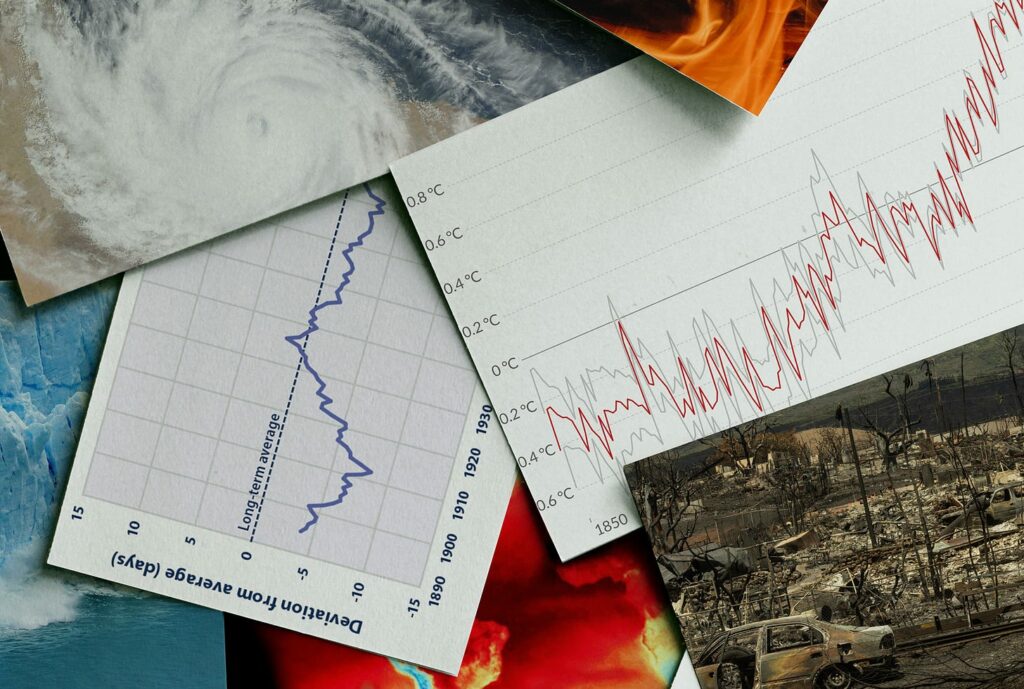Concluding our series on climate scientist Patrick Brown’s essay on the current state of climate science we confirm what CDN readers already knew: there is a powerful filter that operates from the journals down through the news media to ensure that the public only hears bad news about climate and the conclusion is always that we need more aggressive state intervention because otherwise we are all going to die. However if you live in North Korea, no matter how trusting you are, you eventually suspect that the reason every news story praises Dear Leader Kim is not that he’s an all-knowing, all-wise giant among men but that there’s an all-seeing state censorship regime in place. And likewise people in democracies eventually suspect that every climate story is the same not because things are really so bad but because climate science operates on something approaching the North Korean model. And Brown, after escaping that system, confirms that they are right.
Brown goes through several examples of this pattern, beginning with his noticing that a study in a prominent science journal claimed rapid CO2 reductions would be greatly beneficial to the world, a conclusion it reached only by ignoring all the costs of the required policies:
“This became clear to me in 2018, when a paper published in Nature, ‘Large potential reduction in economic damages under UN mitigation targets’, received credulous press coverage, inspiring headlines like ‘Limiting temperature increase to 1.5 Celsius could result in $30 trillion of savings for global economy, study shows.’ The study, in fact, did not show that. Despite what was implied by the title and the headlines, the study did not offer a cost-benefit analysis of the Paris Agreement’s limits but rather a benefit-only analysis, ignoring the well-known costs of forcibly decarbonizing the global economy.”
So Brown did a study on the same topic that included mainstream estimates of the costs of decarbonizing, and concluded that the policy would be a net harm to the global economy. He submitted it to Nature, who informed him that they weren’t even going to review it because it was “of insufficient interest” to their readers. Brown correctly notes that the topic was clearly of interest to the journal’s readers. The real problem was that the conclusion was of insufficient appeal to its editors.
Especially as, he goes on to note:
“The recurring inquiry of ‘How does climate change negatively impact the phenomena I am studying?’ is evident throughout the high-impact literature.”
Of the 50 highest-impact papers published in climate science over the past 5 years, about half had ominous-sounding titles and “almost three-fourths either explicitly or implicitly encourage more rapid greenhouse gas emissions reductions” thus crossing into advocacy. Tellingly, even when the paper itself reached neutral or optimistic conclusions the paper was framed as negative finding:
“An example of this is found in the study ‘Climate impacts on global agriculture emerge earlier in new generation of climate and crop models’ published in Nature Food. The title signals bad news, so one might be surprised to learn that the study showed that in the most up-to-date crop models, projected warming and enhanced CO2 levels increase global wheat, rice, and perhaps soybean yields while only decreasing corn yields. The title and abstract could have been designed to highlight those results, but instead, the take-home, concluding sentence of the abstract emphasizes some of the worst news.”
As he has confessed, Brown went on to play this game himself by tweaking a paper of his on wildfire trends to focus primarily on climate-driven causes rather than, as the data showed, more complex issues. Initially after publication there was fawning global press coverage, but when he admitted what he had done to get it published the media attention vanished, or turned explicitly hostile, even though he was then in a position to provide more truthful insights into drivers of wildfire trends. But of course getting at the truth was never the media’s interest, promoting the narrative was, and he was no longer useful for that.
So the overall lesson, this time from an insider in our climate version of the Korean Central News Agency not just from all those outsiders who have noticed the pattern and begun to question it, is that the narrative is everything. You are not being given the whole truth, and the bits being suppressed are generally the most important ones.
This feedback loop has operated for so long that scientists themselves have internalized the incentives and now reliably self-censor. (Not to mention that those unable or unwilling to do so have been systematically excluded from the profession for so long that, as in the humanities, it would be difficult to find professors willing to supervise dissenting graduate students even if any were to appear.) And Brown doesn’t have any magic solution. But until this problem is fixed the public is justified in maintaining a high degree of skepticism towards the climate change narrative including, and perhaps especially including, “the science”.


